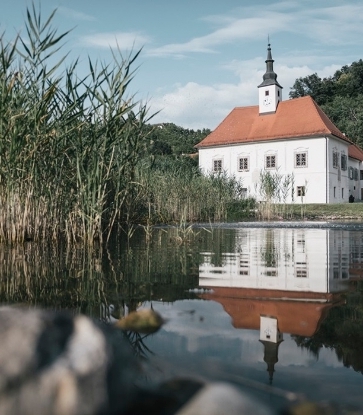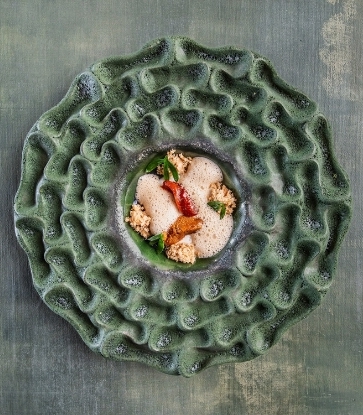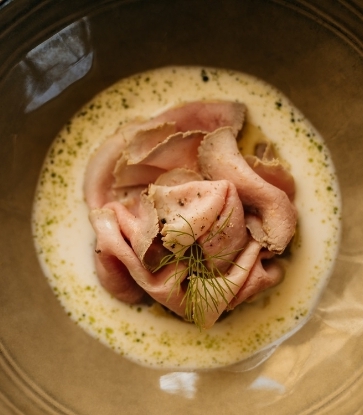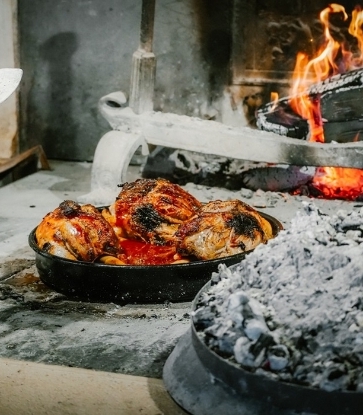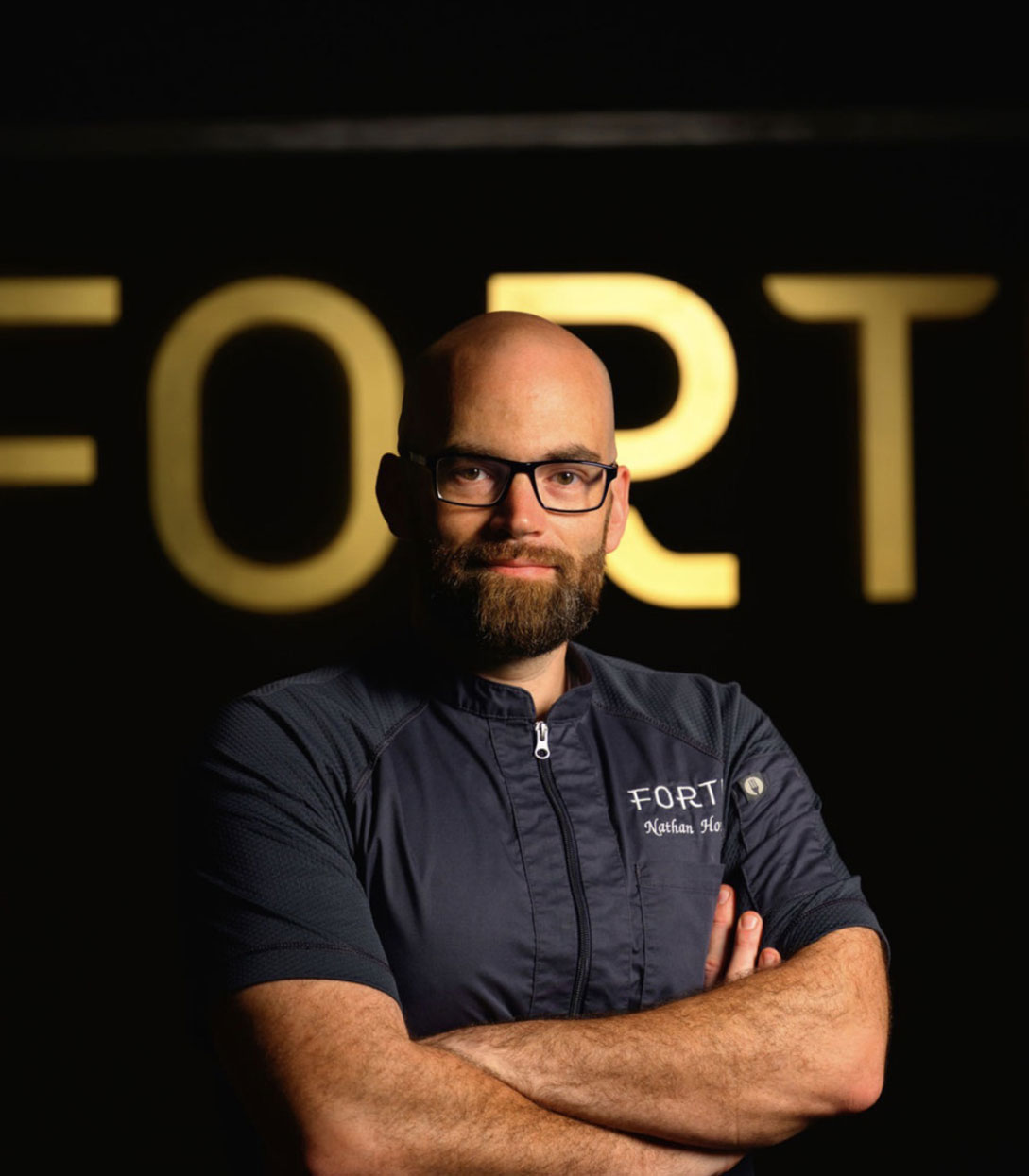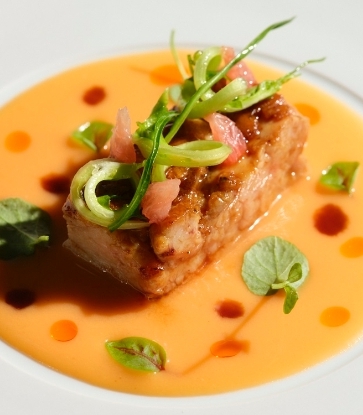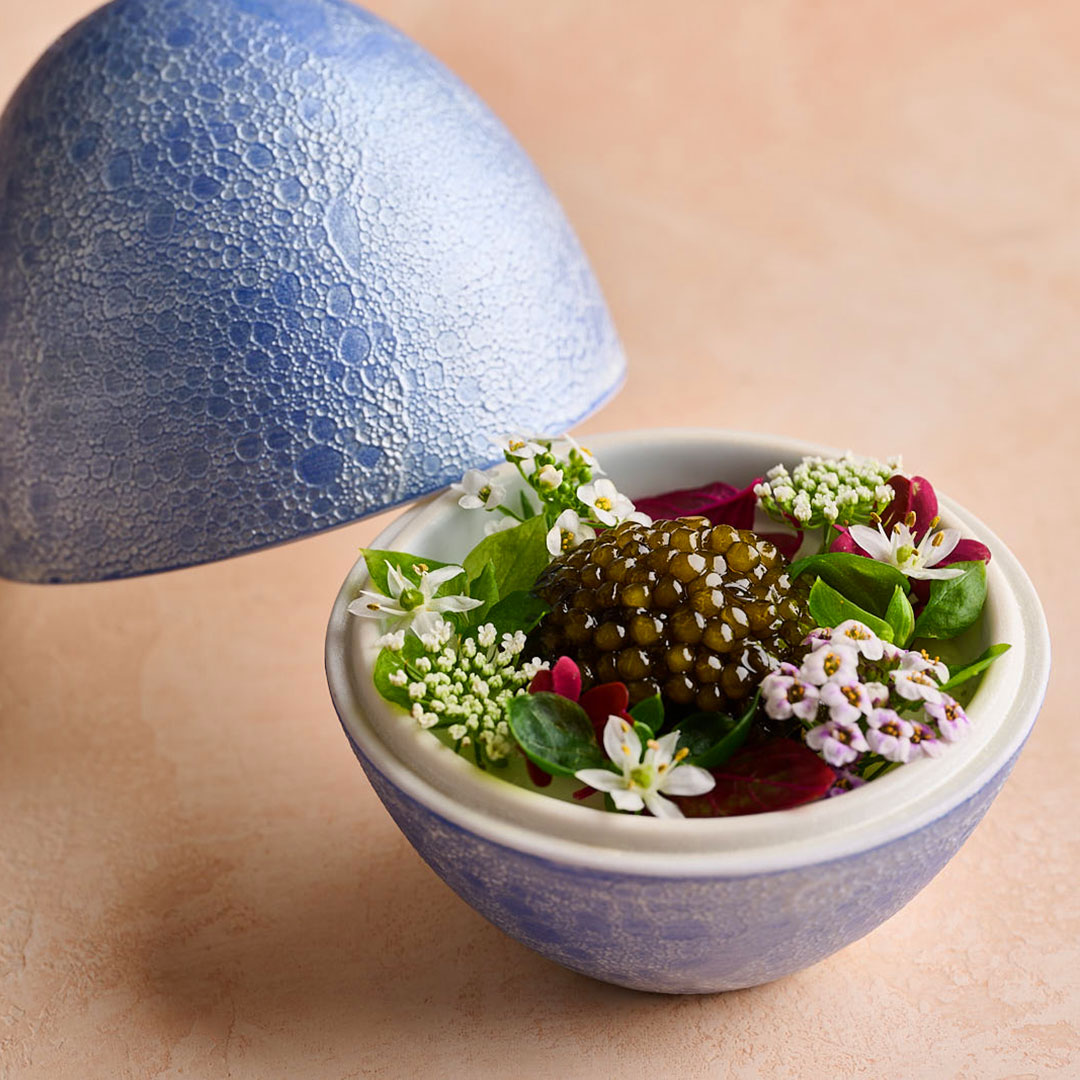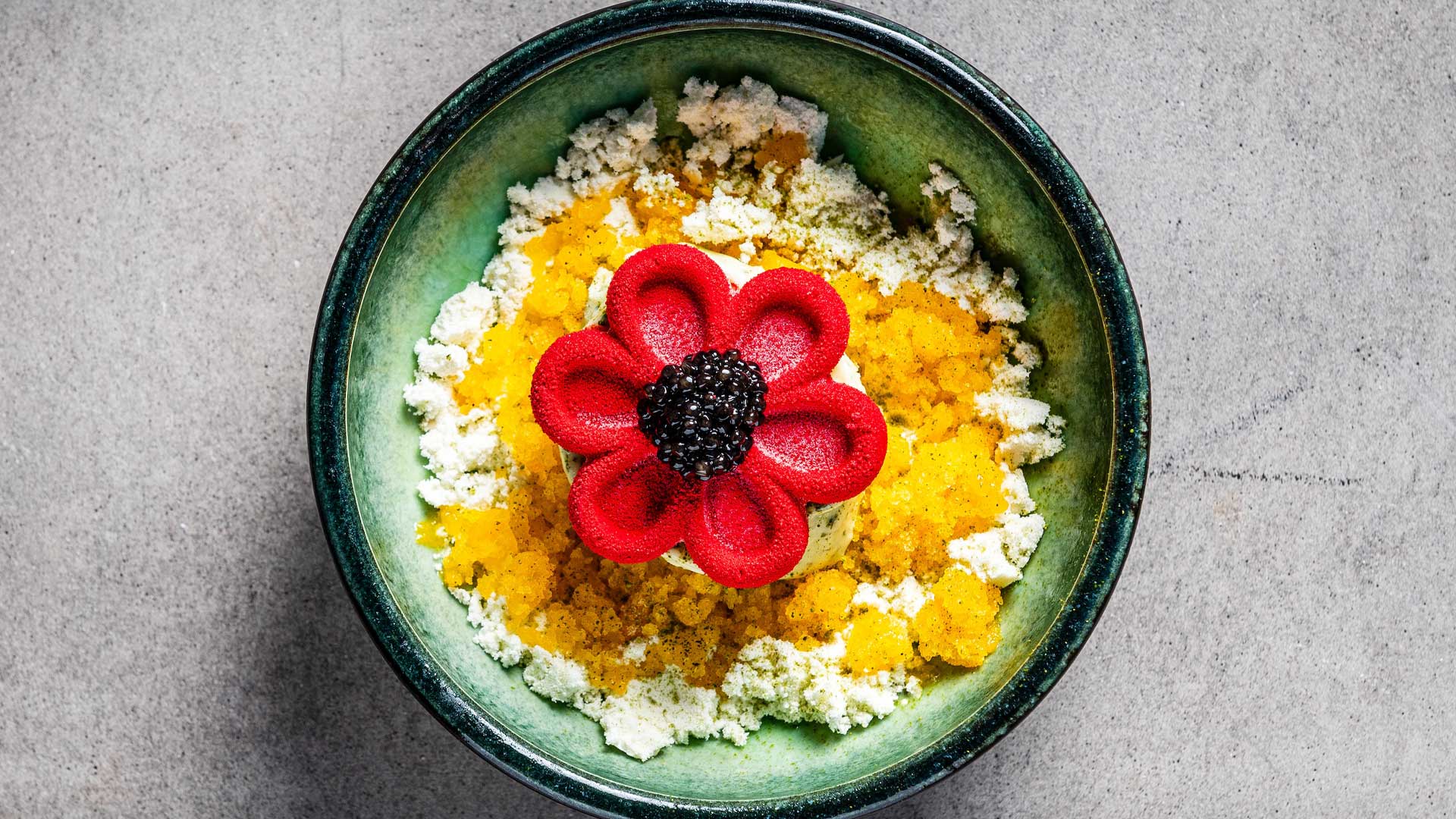Through initiatives such as the creation of organic vegetable gardens, collaboration with small-scale local producers, full use of ingredients, and careful attention to energy efficiency and waste reduction, these establishments have impressed MICHELIN inspectors with their vision and commitment to rethinking the role of gastronomy in today’s world.
As owner Pablo Rivero, of Don Julio and El Preferido de Palermo in Buenos Aires, explains: “When we talk about quality, we cannot only think about the taste of a dish. The ingredients we work with come from the land, and our dishes are connected to that origin. It is essential to find responsible ways of working that respect this relationship.”
Buenos Aires, a National Showcase
According to an old Argentinian saying: “God may be everywhere, but he takes special care of Buenos Aires.” The capital remains a creative hub whose culinary trends inspire other regions. In this vibrant metropolis of 15 million people, four restaurants are part of the MICHELIN Green Star community — a group of chefs and restaurateurs exploring new ways of shaping the future of gastronomy.
Regenerative livestock farming
Don Julio is synonymous with the best meat in Argentina. This steakhouse has been recognised with One MICHELIN Star and is also part of the MICHELIN Green Star Community. “In the last few years, meat has been accused of contributing to climate change and deforestation. However, this debate should be based on science rather than prejudice – Argentina has much to contribute to this discussion and we want to show that this is the case. Because of our history, our local traditions and the huge expanse of countryside in Argentina, cattle graze and are reared mainly on pastureland, which results in carbon being returned to the atmosphere – in greater quantities than that produced by livestock farming itself. At Don Julio we promote regenerative livestock farming, which involves a rotation of the herd that allows the soil to rest and to aid the recovery process that the planet needs”, explains Pablo Rivero, founder of Don Julio.
An example of this regenerative livestock farming can be seen at the Comarca Don Julio, the restaurant’s own farm situated 90km from the city of Buenos Aires, where they raise their own Hereford and Aberdeen Angus cattle. This is in addition to the vegetables used by the steakhouse, where the focus is on establishing diversity through the planting of crops as well as a seasonal approach. The ‘Tomato Festival’, held during the summer every year, is an example of this approach: thousands of kilos of heritage tomatoes (from a time before tomatoes were cross-bred genetically) of all shapes, sizes, colours and flavours are arranged on large planks on the pavement for neighbours from the district to choose and take home with them.
Creating recipes from the moment seeds are planted
“This is an important change that has an effect on how we create our menu”, says chef Guido Tassi, culinary director at El Preferido de Palermo.
“It’s no longer a question of designing a recipe based around what each season has to offer – it goes far beyond this: now we plan our dishes months in advance, from the moment the seed is sown in the ground”. El Preferido de Palermo has worked closely with two vegetable gardens for several years now (both situated on the outskirts of the city, one in San Vicente, the other in La Plata) in the planning of future harvests. “We have a very strong relationship with the vegetable garden. We collect old seeds as well as others from around the world and we give them to the gardeners; the latter also add their own seeds that they source themselves. We speak on the phone every day and they send us photos of what is ripening in the gardens. Our employees join us during the harvesting of crops, so that they learn first-hand about plants, and about how they ripen and fruit”, he says. Today, this restaurant has gone a step further by joining the Comarca Don Julio, with its fruit trees, vegetable garden, dairy, beehives, and livestock. The produce harvested from the vegetable garden is not only used in dishes such as Calahorra peppers in extra-virgin olive oil, and baked rice with herbs and lemon, but is also conserved throughout the year in preserves, pickles and fermented ingredients that can be seen in large jars displayed behind the bar at El Preferido de Palermo.

Generating ecosystems
“Innovation doesn’t just involve putting a new dish on the menu, it also means thinking about the story behind a particular dish”, says Gabriel Oggero, owner-chef at Crizia, a restaurant that opened in the Argentinian capital two decades ago. “We are in the process of becoming B Corp certified, which requires placing equal emphasis on our human resources, the environment, the community and our business”, he tells us.
For many years now, Crizia has been a pioneer in serving filtered water to his guests, as well as avoiding single-use plastic (for example, replacing cling film with containers with lids) and using 100% of each ingredient, especially the fish that arrive every day from the Atlantic Coast. Oggero travels to the north of the country to learn from local farmers about growing potatoes in the Andean highlands, and to Patagonia to speak to fishermen about sea conditions. In the impressive wine cellar that extends across the three floors of the restaurant, there’s a growing selection of organic and biodynamic options, with more than 100 different labels. But perhaps the restaurant’s greatest achievement is the work that it introduced 18 years ago with regard to oysters, its flagship ingredient. “I started travelling to Los Pocitos, a small village in the south of Buenos Aires province and was hugely impressed by an oyster collector, who introduced me to a biologist who ended up being one of the people who has taught me the most about oysters. I then began working with a vet, with the idea of generating an ecosystem that would result in providing our restaurant with top-quality oysters alongside a focus on traceability and sustainable practices. Previously, the process of filtering and cleaning the oysters took place in a tank in Buenos Aires, to where seawater had to be transported via truck. Today, everything takes place in Los Pocitos, which reduces our carbon footprint and gives work to locals who now have a product that they can offer the whole country”.
A vegetable garden planted amid ceibo trees
Anchoíta is renowned for the quality of the ingredients used to create its dishes, but few people know that many of these are sourced from the restaurant’s own vegetable plots, one in the delta of the Paraná river, the other in the district of Pilar.
On these plots run by Santiago Velázquez, you’ll also find different types of poultry (Creole chickens, guinea fowl, ducks and geese) as well as food crops and beehives. “Our key aim is not to plant kilos of lettuce, but instead to help regenerate the local environment”, Santiago explains. “It is about creating a balance between crops and animals and working soil that hasn’t been worked before. In the delta, for example, we plant crops amid ceibo trees halfway up a hill in an area that is only accessible by boat. In Pilar, we have reconverted what was once a polo field in a large fertile area teeming with life”. Run organically, they avoid removing the roots of what they are growing. “We mix winter and summer crops so that when they die off, the plants keep adding organic matter to the soil”. It is this particular farm which provides the ingredients for the restaurant’s Jerusalem artichoke purée with sprouts and pistachios, as well as the sliced beetroot with smoked aubergine and jalapeño mayonnaise.
In addition to its own vegetables, Anchoíta also pays close attention to all the other ingredients it uses. Its freshwater fish (surubí and pati) are sourced from a small fishing cooperative in Entre Ríos, while the pigs reared to make one of the best cured hams in the country roam freely in the pastures of Buenos Aires province, eating acorns from its oak forests.

Mendoza, a paradise at the foot of the Andes
Mendoza’s backdrop of snow-capped peaks, vineyards and olive groves sets the scene for a gastronomy deeply connected to its region. This sense of place is reflected in the three restaurants in Mendoza that are part of the MICHELIN Green Star community.
A stroll through the ‘huerta’
The Lagarde bodega is located in one of the most historic regions for Argentinian wine production, in an area populated with century-old vines. “Our vineyard is organic and for over ten years our fruit and vegetable growing has also been organic”, explains Sofía Pescarmona, CEO of the estate that is home to Zonda Cocina de Paisaje — a restaurant recognised with one MICHELIN Star and part of the MICHELIN Green Star community. “Here, we prioritise agriculture in the style of our grandparents, with lots of fruit trees, over 300 olive trees, and leaving native vegetation to grow naturally, such as the ‘jarilla’ (a wild arbutus). We also have a biodiversity that pleases us enormously. Three years ago, the land here was too small for us so we acquired another larger area on the La Jacintana estate, where we grow over 300 peach trees, tomatoes of every variety and colour, peppers, aromatic herbs, walnut and almond trees… in fact, a bit of everything”, she continues. “And we use everything as well; and when something is left over, we turn it into preserves, pickles and chutneys to ensure that we make full use of produce from the different seasons”.
Zonda Cocina de Paisaje works with suppliers from the local community, including the Kume Matrü goat meat producer, a collective featuring a hundred Mapuche families in the Malargüe area, in the south of the province. It also sources cheeses from nearby La Linqueñita, crockery created by local ceramicists, and knives made in the neighbouring town of Tupungato.
The restaurant offers three menus conceived by chef Augusto García. Two of these include a pre-meal visit to the vegetable gardens to taste seasonal flowers, newly grown asparagus, green leaves, and tender root vegetables. “We want people to be aware of what they eat; that they understand that one part of a plant can be spicier, another sweeter, and a different part more bitter. Our aim is to surprise our guests with a sensory experience”, Sofía explains. This is what cuisine inspired by our local landscapes is all about – understanding what the land gives us.

The revival of native tomatoes
Like very few places in the world Casa Vigil offers a combination of imagination and pleasure, wine and literature, cooking and art. Inspired by the Divine Comedy, it is the fiefdom of oenologist Alejandro Vigil, the man behind some of Argentina’s most award-winning wines. The restaurant is run by him and his family with plenty of freedom but also with a great sense of responsibility. While Virgil guided Dante on his journey from hell to paradise, at Casa Vigil the guiding principle is a thoughtful approach to gastronomy, inspired by respect for nature and local produce.
“Everything we do is based around this precept: from integrated waste management, whereby we separate and dispose of dry waste (in collaboration with different urban waste management cooperatives) to organic composting, and other activities such as forestation projects, clean-up campaigns, waste collection, the creation of a vegetable garden at the José Sixto Álvarez school, as well as our own garden that provides many of the ingredients for the restaurant”, explains María Sance, a doctor in biological science, partner of Alejandro and part of the Universo Vigil’s environmental department team.
“Through the Labrar project, we support and work with local producers, encouraging their greater connection with their land, as well as promoting the diversity of horticultural plants as part of a policy of regenerative agriculture and fair trade”, she continues. One of the Labrar project’s activities consists of gathering and creating a list of native tomatoes as well as heritage varieties that have been eclipsed by powerful industrial concerns. Every summer now, they grow and harvest over 50 varieties of tomato based around regenerative and agro-ecological practices. In February 2024, they held the second Fiesta del Tomate, featuring tastings, a producers’ fair, and dishes prepared by invited chefs from Argentina, Bolivia, Mexico and Brazil.

A focus on vegetables
In the vast majority of restaurants in Mendoza, meat is the undoubted star of the show, as you would expect from a country with a tradition of cattle breeding. But at Riccitelli Bistró, the restaurant at the Riccitelli bodega, the path they have chosen is completely different.
“80% of what we serve is based around vegetables”, chef Juan Ventureyra tells us. “I started my first garden as soon as I came to live in Mendoza ten years ago. I started out not knowing a thing, but today I have a collection of seeds from over 380 different species, which I use in three vegetable plots: one at Riccitelli, a second (over a hectare in size) in Maipú; and a third in Pedriel”. As well as growing dozens of varieties of tomato, over ten types of aubergine, multi-coloured chilli peppers, pumpkins and squash, green leaves, aromatic herbs, string beans, watermelon, Jerusalem artichoke, salicornia, peaches and much more besides, Juan lends great importance to wild ingredients that grow naturally in the local area. “As you walk around, you discover incredible aromas. So, I hired two biologists to explore the estate for a whole year, documenting what they found growing on the ground. When they had completed their task, they handed me a list with 16 edible plants that I use in my menu, from a wild rocket to a wild amaranth that only grows in ‘acequias’ (irrigation channels). And with the bounty of these vegetable gardens at his disposal, this cook not only chooses which ingredients to use, but also how to use them. “When you buy something, you have no decision-making powers, whereas here you can use the fruit or the flower, the leaf or the stem, the seed or the root – you have many more options”.

Hero image: Tomatoes harvested for Don Julio © Don Julio
This article has been written with the support of our Destination Partner in the "Michelin Guide Buenos Aires & Mendoza 2024".









